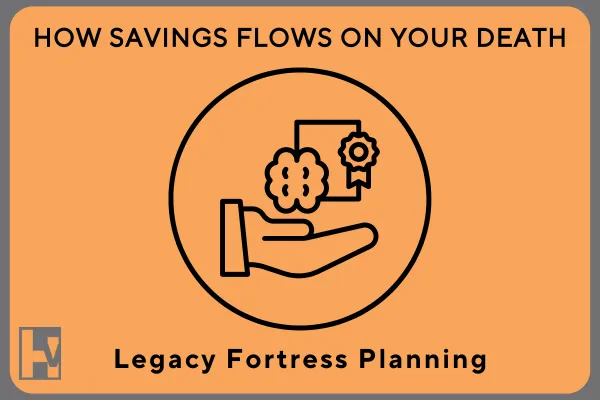Canadian Financial & Retirement Planning Blogs
Explore Our Popular Blog Categories
IMMEDIATE FINANCING ARRANGEMENT (IFA)
FOR CANADIAN CORPORATIONS
An IFA is a practice whereby you take out a premium life insurance policy that has a cash building component, such as an exempt whole or universal life insurance policy, and then directly use the policy as collateral to obtain a loan.
How the IFA works to help you get more tax deductions?

6 Reasons Why Retirement Planning
Should Be Your Priority
Retirement management has several benefits that range from both personal and psychological
to financial. Here are several advantages and common reasons for effectively planning your
retirement. As popular saying
“If you fail to plan, you are planning to fail!”

How to prepare yourself to face life- threatening situations and make the right financial decisions?
Each one of us begins a new day praying to God for the future of our family and ourselves. We step out of our home for work or any reason without knowing what is going to happen. Many personal unexpected situations might affect your family at large.

What Happens to Your Savings RRSP, TFSA and Other Assets When You Die?
What Happens to Your Savings in RRSP, TFSA and Other Assets When You Die?
In this knowledge-base article, we will explore what happens to your RRSPs, RRIFs, TFSAs, and other non-registered assets when you pass away. Understanding these details is crucial for effective estate planning and ensuring your loved ones are financially secure.
This is not a tax or legal advice. Anyone to whom this material is promoted should consult with and rely on their own independent tax and legal professional regarding their particular situation and the concepts presented herein.
Introduction
Planning for retirement is a significant milestone, but it's equally important to plan for what happens to your assets when you are no longer around. This article will guide you through the essential aspects of asset rollovers and how to avoid common pitfalls.
Key Terms: Annuitant and Qualified Beneficiary

Who is annuitant?
An annuitant is the person who is entitled to collect the regular payments of a pension or an annuity investment. The annuitant may be the contract holder and successor annuitant as a surviving spouse.
Who is Qualified Beneficiary for RRSP?
A qualified beneficiary for RRSP must be a spouse, common-law partner (CLP), or a financially dependent child or grandchild with a mental or physical disability.
What Happens to Your RRSPs when you die?
When an RRSP account holder (annuitant) dies, the RRSP can be rolled over to a beneficiary on a tax-deferred basis. The beneficiary must be a spouse, common-law partner (CLP), or a financially dependent child or grandchild with a mental or physical disability.
When the RRSP account holder (annuitant) dies, the beneficiaries are deemed to have received their RRSP assets just before death. This generally means the RRSP value at the time of death is included in the taxable income of the deceased for the year of death. However, the CRA allows a "qualified beneficiary" to receive the proceeds and report the income inclusion on their tax return instead.
If the beneficiary contributes the amount to their RRSP, they can claim a deduction to offset that taxable income inclusion. Keep in mind that the beneficiary’s RRSP contribution room doesn’t change.
To avoid pitfalls, ensure your beneficiary designations are up-to-date and that your will matches these designations.
What Happens to Your RRIFs if you die?
Key Terms: Annuitant, Successor Annuitant, and Beneficiary
When the annuitant of a RRIF dies, the rollover is similar to that of an RRSP. The remaining amount received from the RRIF in the year has to be reported on the annuitant's income tax return for the year of death unless:
1. The annuitant names their spouse the successor annuitant of the RRIF. In this case, the RRIF continues, and the spouse becomes the successor annuitant under the fund.
2. The spouse or partner is named in the RRIF contract as the sole beneficiary, and the eligible part of the RRIF is directly transferred to an RRSP, PRPP, SPP, or RRIF under which the spouse or CLP is the annuitant.
Possible pitfalls include not starting the RRIF early enough. Partial withdrawals in retirement from both registered and non-registered accounts can often make sense. Snap Projections allows you to control the amount of withdrawals from any asset, letting you decide how much to withdraw from your RRSP, RRIF, LIF, TFSA, or any non-registered asset.
Read more about Death of an Annuitant on CRA website here.
What Happens to Your TFSA if you die?
Key Terms: Successor Holder, Survivor, and Beneficiary
If designated as a beneficiary, the surviving spouse can contribute and designate all or a portion of a survivor payment as an exempt contribution to their own TFSA without affecting their own unused contribution room, subject to certain conditions and limits.
A TFSA does not terminate on death; the successor simply replaces the deceased as the plan holder, and the plan continues with all rights passing to the successor.
The successor holder is the person named to inherit the TFSA. There are two types of successor holders:
1. Survivor: A spouse or CLP at the time of death. The survivor can designate all or a portion of the TFSA to contribute to their own TFSA without affecting their own contribution room.
2. Beneficiary: A child or qualified donee. The beneficiary can contribute all or a portion of the TFSA to their own TFSA only if they have unused room.
To avoid potential pitfalls, ensure your clients have named a successor holder − not just a beneficiary.
What Happens to Your Non-Registered Assets if you die?
An automatic rollover rule applies, and the spouse will receive the assets with no tax consequences. The disposition and transfer are deemed to have happened at Adjusted Cost Base (ACB) − not Fair Market Value (FMV), which would trigger taxes (Income Tax Act, Section 74.2).
The automatic rollover applies unless a couple "elects out" of section 74.2 and wants to have the transfer happen at FMV, which can be desirable in certain situations, for example, if you want to trigger capital gain taxes in the estate of the deceased spouse.

How Are Asset Rollovers Handled?
The assets are automatically rolled over in the following manner:
- Registered assets are rolled over on a tax-deferred basis, which means pay the tax later at withdrawal on both capital invested and the growth at your marginal tax rate at withdrawal.
- TFSA assets are rolled over on a tax-free basis, which means you will never pay any more tax on both the capital invested and the compounded growth when ever you withdraw the amount.
- Non-registered assets are rolled over at Adjusted Cost Base (ACB), not FMV (without triggering capital gain tax).
Conclusion
Mastering the knowledge of what happens to your assets upon death is crucial for ensuring the financial security of your loved ones. By understanding and optimizing these details, you can make informed decisions and avoid common pitfalls.
Ready to learn more about securing your financial future?
Contact us to discover expert strategies on cash flow management, budgeting, and tax optimization.
Tool and Calculator: The Canadian Financial Calculators for investments and tax calculations for practical use.
IMMEDIATE FINANCING ARRANGEMENT (IFA)
FOR CANADIAN CORPORATIONS
An IFA is a practice whereby you take out a premium life insurance policy that has a cash building component, such as an exempt whole or universal life insurance policy, and then directly use the policy as collateral to obtain a loan. In this way, you gain the full benefit from the insurance policy, yet you are still able to use your money to build your business or to invest in other income-generating avenues.
How the IFA works to help you get more tax deductions?
6 Reasons Why Retirement Planning Should Be Your Priority
Retirement management has several benefits that range from both personal and psychological to financial. Here are several advantages and common reasons for effectively planning your retirement. As popular saying
“If you fail to plan, you are planning to fail!”

How to prepare yourself to face life- threatening situations and make the right financial decisions?
Each one of us begins a new day praying to God for the future of our family and ourselves. We step out of our home for work or any reason without knowing what is going to happen. Many personal unexpected situations might affect your family at large.
Working Hours
🟢 Monday to Saturday : 9:30 AM - 6:30 PM
🔴 Sunday : Closed
Our Service Area
Ontario | Quebec
Alberta | Nova Scotia
British Columbia | Saskatchewan
New Brunswick
Join Our Blogs
Kanwaljit (Sunny) Kochar DBA Hexavision Enterprise is licensed to sell Segregated Funds investments, Life and A&S Insurance products in Ontario, Alberta, QC, NB, SK, NS and British Columbia. Not available in other provinces.
License #s: FSCO LIC#17161321 (ON), AIC LIC # M-3493167-1763384-2020 (AL), BC LIC#LIC-2020-0022136-R01 (BC). Insurance and segregated funds provided by Carte Risk Management Inc.
@ 2025 Hexavision Enterprise| Terms And Condition| Privacy Policy | Advisor Disclosure
© 2025 Hexavision Enterprise. All rights reserved
Our Service Area
Ontario | Quebec
Alberta | Nova Scotia
British Columbia | Saskatchewan
New Brunswick
Working Hours
🟢 Monday to Friday : 9:30 - 6:30 EST
🔴 Saturday and Sunday : Closed
Join Our Blogs/Newsletter
Kanwaljit (Sunny) Kochar DBA Hexavision Enterprise is licensed to sell Segregated Funds investments, Life and A&S Insurance products in Ontario, Alberta, QC, NB, SK, NS and British Columbia. Not available in other provinces. License #s: FSCO LIC#17161321 (ON), AIC LIC # M-3493167-1763384-2020 (AL), BC LIC#LIC-2020-0022136-R01 (BC), AMF LIC# 2023-CI-1016414(QC), LIC # 087345 (SK), FCSC LIC# 220039066 (NB) Insurance and segregated funds provided by Carte Risk Management Inc.
@ 2025 Hexavision Enterprise| Terms And Condition| Privacy Policy | Advisor Disclosure
© 2025 Hexavision Enterprise. All rights reserved



